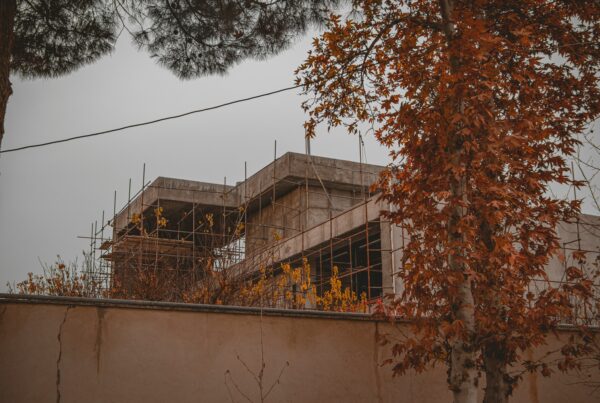Finding Strength in Your Weakness
Big Idea: The Path To Strength Begins With A Recognition Of Weakness.
Week 7 Main Scripture:
Haggai 2:10-19
Sermon Highlights
At some point in life, we reach a moment in which we realize there are forces outside of us that are stronger than us.
We like to see ourselves as strong, and we’re unwilling to feel exposed or for anyone to see our weaknesses. From our perspective, weakness is for others to experience, not us.
Consecration, Defilement, and Thermodynamics
In Haggai 2:13-14, we see how Israel was meant to be the consecrated people of God. They were meant to be God’s holy people, build his temple, and spread God’s light out into the world. But they had chosen not to spread consecration; they were defiled. Everything they touch became defiled in God’s eyes.
The Second Law of Thermodynamics states that, in any isolated system, the total entropy will either increase or remain constant over time but never decrease. Entropy is a state of disorder, randomness, or uncertainty. In other words, randomness, chaos, and disorder spread when we engage with the world. So, if we are not people who are intentional with the inputs of our lives, we will not be able to control the outcomes of our lives.
Any weakness we have creates an opportunity to defile ourselves or others. So, God calls us to be aware of our limitations and weaknesses.
Acknowledging Weakness and Finding Strength
Strength and health don’t occur naturally in the fallen world. We have to work toward it or train for it intentionally. The places we go, the things we consume, and the energy we are willing to expend build toward the outcomes of our lives. A willingness to cling to consecration, walk in holiness, and engage with your weaknesses and limitations can bring healing and strength.
Weaknesses grow and persist when we ignore them.
God reminds his people, in Haggai 2:15-16, that when they left his presence to find joy, fulfillment, and success outside of him, all they found was frustration. God didn’t just remove his blessing from them. He also moved against them. His goal was not to hurt them but to cause them to return to him.
God wanted his people to remember their finished work of laying the temple’s foundation because it marked their return to him, where he would begin blessing them again.
When we show up, God shows up.
It’s a gift to have your weakness exposed. Once you’ve identified a weakness, there’s now a path towards strength.
Strength and weakness are relative. They always exist in comparison to something else.
We are not always strong or weak. We will experience strength and weakness in different areas of our lives.
Engaging with our weaknesses is not an opportunity for humiliation but an opportunity to become who God’s calling us to be.
Truths About Strength
- Strength is dynamic and contextual.
- Strength is built through adversity.
- Strength requires vulnerability.
- Strength is multifaceted.
In Luke 8, we see an encounter in which a woman who had been subject to bleeding for many years brings her weakness to Jesus, and she finds healing. Her weakness is exposed at the risk of defiling everyone around her, but Jesus restores her to community and gives her peace.
Jesus has no limitation or weakness; therefore, he cannot be defiled. He has the power to cleanse, reversing the natural order of defilement and the increase of weakness. Christ took our place of weakness by bleeding and dying on a cross, cast outside the city of Jerusalem so that we can be made whole and restored to a relationship with God.
Christ is considered for less with your strength than he is with your surrender.
“When we choose surrender for the right reasons, it empowers us. A curious mystery comes from honoring the truth that surrender with gentleness can be its own form of strength. Our ability to hold our lives with a flexible, open posture allows God’s power to manifest in us…We are able to move toward integration, wholeness, and peace, open to what may come. Essentially, we grow in our resiliency.” – Aundi Kolber
Looking to learn more about the book of Haggai? Go deeper here.




